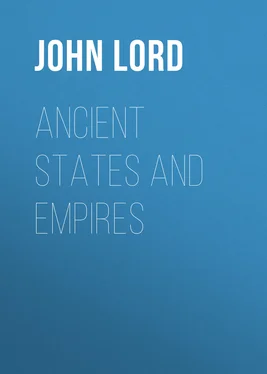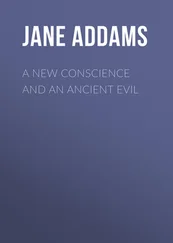John Lord - Ancient States and Empires
Здесь есть возможность читать онлайн «John Lord - Ancient States and Empires» — ознакомительный отрывок электронной книги совершенно бесплатно, а после прочтения отрывка купить полную версию. В некоторых случаях можно слушать аудио, скачать через торрент в формате fb2 и присутствует краткое содержание. Жанр: foreign_prose, История, foreign_edu, foreign_antique, на английском языке. Описание произведения, (предисловие) а так же отзывы посетителей доступны на портале библиотеки ЛибКат.
- Название:Ancient States and Empires
- Автор:
- Жанр:
- Год:неизвестен
- ISBN:нет данных
- Рейтинг книги:4 / 5. Голосов: 1
-
Избранное:Добавить в избранное
- Отзывы:
-
Ваша оценка:
- 80
- 1
- 2
- 3
- 4
- 5
Ancient States and Empires: краткое содержание, описание и аннотация
Предлагаем к чтению аннотацию, описание, краткое содержание или предисловие (зависит от того, что написал сам автор книги «Ancient States and Empires»). Если вы не нашли необходимую информацию о книге — напишите в комментариях, мы постараемся отыскать её.
Ancient States and Empires — читать онлайн ознакомительный отрывок
Ниже представлен текст книги, разбитый по страницам. Система сохранения места последней прочитанной страницы, позволяет с удобством читать онлайн бесплатно книгу «Ancient States and Empires», без необходимости каждый раз заново искать на чём Вы остановились. Поставьте закладку, и сможете в любой момент перейти на страницу, на которой закончили чтение.
Интервал:
Закладка:
Moses.
But a deliverer was raised up by God in the person of Moses, the greatest man in human annals, when we consider his marvelous intellectual gifts, his great work of legislation, his heroic qualities, his moral excellence, and his executive talents. His genius is more powerfully stamped upon civilization than that of any other one man—not merely on the Jews, but even Christian nations. He was born B.C. 1571, sixty-four years after the death of Joseph. Hidden in his birth, to escape the sanguinary decree of Pharaoh he was adopted by the daughter of the king, and taught by the priests in all the learning of the Egyptians. He was also a great warrior, and gained great victories over the Ethiopians. But seeing the afflictions of his brethren, he preferred to share their lot than enjoy all the advantages of his elevated rank in the palace of the king—an act of self-renunciation unparalleled in history. Seeing an Egyptian smite a Hebrew, he slew him in a burst of indignation, and was compelled to fly. He fled to Jethro, an Arab chieftain, among the Midianites. He was now forty years of age, in the prime of his life, and in the full maturity of his powers. The next forty years were devoted to a life of contemplation, the best preparation for his future duties. In the most secret places of the wilderness of Sinai, at Horeb, he communed with God, who appeared in the burning bush, and revealed the magnificent mission which he was destined to fulfill. He was called to deliver his brethren from bondage; but forty years of quiet contemplation, while tending the flocks of Jethro, whose daughter he married, had made him timid and modest. God renewed the covenant made to Abraham and Jacob, and Moses returned to Egypt to fulfill his mission. He joined himself with Aaron, his brother, and the two went and gathered together all the elders of the children of Israel, and after securing their confidence by signs and wonders, revealed their mission.
The slavery of the Israelites.
They then went to Pharaoh, a new king, and entreated of him permission to allow the people of Israel to go into the wilderness and hold a feast in obedience to the command of God. But Pharaoh said, who is the Lord that I should obey his voice. I know not the Lord— your God . The result was, the anger of the king and the increased burdens of the Israelites, which tended to make them indifferent to the voice of Moses, from the excess of their anguish.
The ten plagues. The deliverance of the Israelites.
Then followed the ten plagues which afflicted the Egyptians, and the obstinacy of the monarch, resolved to suffer any evil rather than permit the Israelites to go free. But the last plague was greater than the king could bear—the destruction of all the first-born in his land—and he hastily summoned Moses and Aaron in the night, under the impulse of a mighty fear, and bade them to depart with all their hosts and all their possessions. The Egyptians seconded the command, anxious to be relieved from further evils, and the Israelites, after spoiling the Egyptians, departed in the night—“a night to be much observed” for all generations, marching by the line of the ancient canal from Rameses, not far from Heliopolis, toward the southern frontier of Palestine. But Moses, instructed not to conduct his people at once to a conflict with the warlike inhabitants of Canaan, for which they were unprepared, having just issued from slavery, brought them round by a sudden turn to the south and east, upon an arm or gulf of the Red Sea. To the eyes of the Egyptians, who repented that they had suffered them to depart, and who now pursued them with a great army, they were caught in a trap. Their miraculous deliverance, one of the great events of their history, and the ruin of the Egyptian hosts, and their three months' march and countermarch in the wilderness need not be enlarged upon.
The exodus.
The exodus took place 430 years from the call of Abraham, after a sojourn in Egypt of 215 years, the greater part of which had been passed in abject slavery and misery. There were 600,000 men, besides women and children and strangers.
Hebrew jurisprudence.
It was during their various wanderings in the wilderness of Sinai—forty years of discipline—that Moses gave to the Hebrews the rules they were to observe during all their generations, until a new dispensation should come. These form that great system of original jurisprudence that has entered, more or less, into the codes of all nations, and by which the genius of the lawgiver is especially manifested; although it is not to be forgotten he framed his laws by divine direction.
Let us examine briefly the nature and character of these laws. They have been ably expounded by Bishop Warburton, Prof. Wines and others.
The principles of the Jewish code.
The great fundamental principle of the Jewish code was to establish the doctrine of the unity of God. Idolatry had crept into the religious system of all the other nations of the world, and a degrading polytheism was everywhere prevalent. The Israelites had not probably escaped the contagion of bad example, and the suggestions of evil powers. The most necessary truth to impress upon the nation was the God of Abraham, and Isaac, and Jacob. Jehovah was made the supreme head of the Jewish state, whom the Hebrews were required, first and last, to recognize, and whose laws they were required to obey. And this right to give laws to the Hebrews was deduced, not only because he was the supreme creator and preserver, but because he had also signally and especially laid the foundation of the state by signs and miracles. He had spoken to the patriarchs, he had brought them into the land of Egypt, he had delivered them when oppressed. Hence, they were to have no other gods than this God of Abraham—this supreme, personal, benevolent God. The violation of this fundamental law was to be attended with the severest penalties. Hence Moses institutes the worship of the Supreme Deity. It was indeed ritualistic, and blended with sacrifices and ceremonies; but the idea—the spiritual idea of God as the supreme object of all obedience and faith, was impressed first of all upon the minds of the Israelites, and engraven on the tables of stone—“Thou shalt have no other gods before me.”
Having established the idea and the worship of God, Moses then instituted the various rites of the service, and laid down the principles of civil government, as the dictation of this Supreme Deity, under whose supreme guidance they were to be ruled.
The Ten Commandments.
But before the details of the laws were given to guide the Israelites in their civil polity, or to regulate the worship of Jehovah, Moses, it would seem, first spake the word of God, amid the thunders and lightnings of Sinai, to the assembled people, and delivered the ten fundamental commandments which were to bind them and all succeeding generations. Whether these were those which were afterward written on the two tables of stone, or not, we do not know. We know only that these great obligations were declared soon after the Israelites had encamped around Sinai, and to the whole people orally.
And, with these, God directed Moses more particularly to declare also the laws relating to man-servants, and to manslaughter, to injury to women, to stealing, to damage, to the treatment of strangers, to usury, to slander, to the observance of the Sabbath, to the reverence due to magistrates, and sundry other things, which seem to be included in the ten commandments.
Moses on Mount Sinai.
After this, if we rightly interpret the book of Exodus, Moses went up into the mountain of Sinai, and there abode forty days and forty nights, receiving the commandments of God. Then followed the directions respecting the ark, and the tabernacle, and the mercy-seat, and the cherubim. And then were ordained the priesthood of Aaron and his vestments, and the garments for Aaron's sons, and the ceremonies which pertained to the consecration of priests, and the altar of incense, and the brazen laver.
Читать дальшеИнтервал:
Закладка:
Похожие книги на «Ancient States and Empires»
Представляем Вашему вниманию похожие книги на «Ancient States and Empires» списком для выбора. Мы отобрали схожую по названию и смыслу литературу в надежде предоставить читателям больше вариантов отыскать новые, интересные, ещё непрочитанные произведения.
Обсуждение, отзывы о книге «Ancient States and Empires» и просто собственные мнения читателей. Оставьте ваши комментарии, напишите, что Вы думаете о произведении, его смысле или главных героях. Укажите что конкретно понравилось, а что нет, и почему Вы так считаете.







